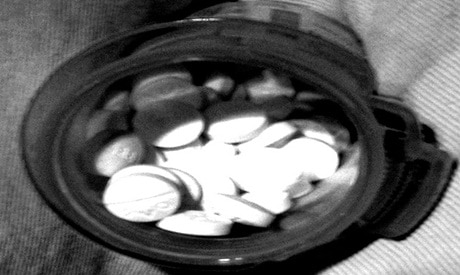
Diagnosis of Attention Deficit Hyperactivity Disorder, better known as ADHD, is on the rise, as a recently released study found. The new study by Kaiser Permanente and published in the journal JAMA Pediatrics looked at children ages five to 11 years old who received care at Kaiser Permanente Southern California in Pasadena from January 1, 2001 through December 31, 2010. The rate of ADHD diagnosis increased from 2.5 percent in 2001 to 3.1 percent in 2010, a relative increase of 24 percent.
Some ethnic groups saw higher increases. The rates among whites increased 4.7 percent to 5.6 percent, African-Americans 2.6 to 4.1 percent, and Latinos 1.7 to 2.5 percent. Interestingly, the rates for Asian/Pacific Islander and other groups remained unchanged. The rates of diagnosis among African-American girls significantly increased.
The study also noted that the income levels of the families had a connection to diagnosis. "Children living in high-income households were at increased risk of diagnosis," the study stated.
Stimulant medication involved emergency department visits increase
Another new study found that emergency department (ED) visits involving ADHD stimulant medications is on the rise. Published by Drug Abuse Warning Network (DAWN) Report, the study looked at the amount of ED visits involving ADHD stimulant medications between 2005 and 2010, and found ED visits increased from 13,379 to a whopping 31,244 visits! The number of ADHD stimulant medications involving non-medical uses increased from 5,212 to 15,585.
Stimulant medication "remains the first-line treatment for those disorders in both children and adults," the study notes. About two-thirds of children ages four to 17 diagnosed with ADHD took medication in 2007. The side effects of stimulant medications, according to the study, include nervousness, insomnia, dizziness, and cardiovascular or psychiatric problems. "Even when taken as directed, ADHD stimulant medications entail some risk," the study stated.
There is an interesting statement contained in the study: "A variety of treatment options, both pharmaceutical and non-pharmaceutical, are available for adults with ADHD." Yes, there are non-pharmaceutical treatments for ADHD. That is a fact that adults with ADHD and parents of children with ADHD should be aware of. There are homeopathic treatments for treating ADHD, for example. Here are a few articles on the subject to check out:
- The ADHD Diet
- Adult ADHD Symptoms and Treatments
- Homeopathy For Children With ADHD
Photo credit: Flickr user, TheDarkThing




